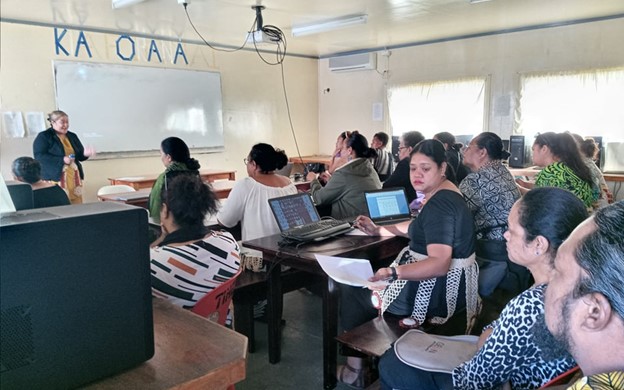
COL is supporting the Ministry of Education and Training (MET), Tonga to build the capacity of inclusive and disability educators, teachers and practitioners. A new project provides insights into conducting needs assessments as well as selecting and using appropriate assistive technologies to support learning for students with disabilities. It aims to equip participants with the professional knowledge and skills so that they can train others.
Within the project framework, a course on ‘Introduction to Needs Assessment and Assistive Technologies’ was recently offered to 30 inclusive education staff, teachers and NGO disability practitioners. A second course titled ‘Introduction to Disability Needs Assessments’ is currently underway.
Malia Niukapu Sio, Senior Lecturer and IT Co-ordinator at Tonga Institute of Higher Education hosted the platform for the two courses offered by COL. She said project participants now understand the bigger picture of how assistive technologies can support persons with disabilities to become more independent, build self-esteem and reduce their anxiety and stress.
According to the Tonga Disability Survey Report, persons with disabilities (PWD) face a lot of difficulties accessing activities and services in many areas, including employment, transport, education, and health.
“For some learners, this was a platform to study online for the first time,” said Matelita Taufa, MET Inclusive Education Coordinator, about the new project. She added that following the first course many have already started implementing relevant assistive technologies at work.
Dr Mairette Newman, COL Education Specialist: VUSSC, who facilitates the project, said: “COL is committed to ensuring that all learners get an opportunity to learn online and no one is left behind. As a result of this project, Tonga now has a cadre of teachers and trainers who can assist learners with disabilities to be more independent and productive.”


